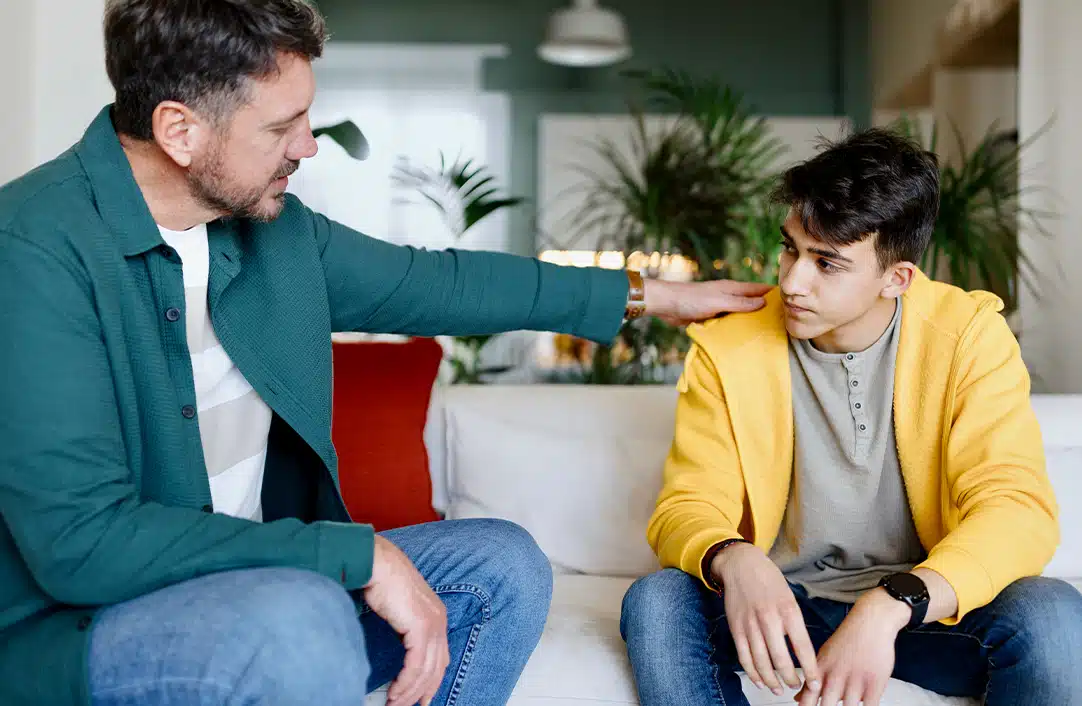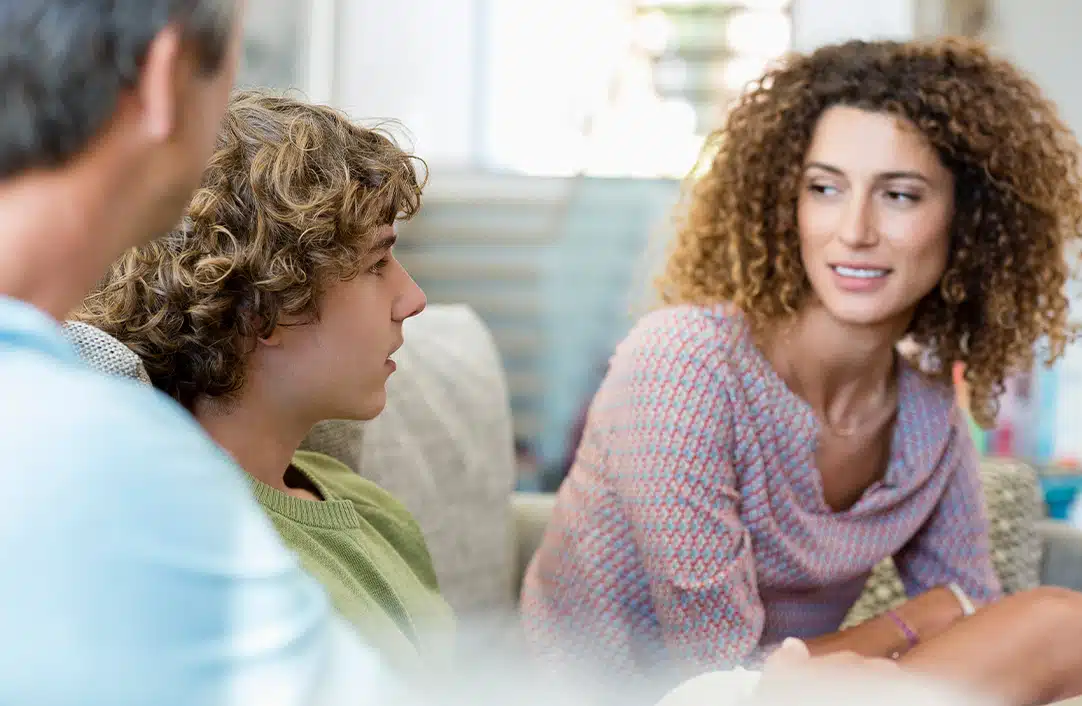Your child just asked you a question about an unhealthy or harmful sexual behavior, or they’ve exhibited an unhealthy or harmful sexual behavior, or they’re confessing that someone has been making them feel uncomfortable and they want to tell you all about it.
In any of these three scenarios, you want to respond and not react.
What’s the Difference and Why Does it Matter?
When you react you do so without thinking; you’ll say or do things based on the moment
and the emotions you’re feeling and you may end up doing or saying something you
regret. When you respond it leads to an open conversation and will cultivate trust
between you and your child.
Here are five ways to respond to your child if they have questions about, or problems with, unhealthy sexual behaviors:
01
TAKE A DEEP BREATH.
It will give you a moment to pause, process what’s happening, and decide how you need to handle the situation.
02
PAY ATTENTION TO EMOTIONS.
Your child may be nervous or upset, be sensitive to that. Your own emotions may begin to run high, but you need to keep them in check. Responding in a controlled and kind way is important so that you do not shut your child down. The worst scenario is a highly emotional reaction that teaches your child not to talk with you next time there is a
problem.
03
LISTEN.
It’s difficult to listen, especially if you’d rather not hear the things your child is saying or asking. Don’t interrupt them, let them talk as much as they want to before you respond.
04
VALIDATE THEM.
Recognize how hard it may be for them to talk to you. Let them know how much you appreciate their trust in you. Assure them that you are there to help.
05
SET OR REINFORCE EXPECTATIONS.
If you are trying to curb an unhealthy behavior, set up the parameters or reinforce your guidelines. If you are trying to limit their exposure to a certain thing, let them know about that change. If you are planning on keeping them away from the person who made them feel uncomfortable, be honest with them about it.
As you learn to respond instead of react to these types of conversations it will keep an ongoing dialogue with your child about healthy and unhealthy sexual behaviors. It’s one of the most important things you can do to keep your child safe from sexual abuse. It will also open the door for your children to come to you and trust you when they have questions about sex and not rely on others. These conversations may make you feel uncomfortable at first, but make sure you keep going! They’re important for your child, and for you, and will benefit you both.
Recent blogs

Common Symptoms Experienced by Adult Survivors of Child Sexual Abuse
Childhood sexual abuse can have long-lasting debilitating effects throughout the life of a survivor. The impacts of sexual trauma are profound and far-reaching, affecting every aspect of an individual’s life—physically, psychologically, cognitively, and socially. But why is this so?
Read this article

Statute of Limitations on Sexual Abuse
In our work with individuals who were sexually abused, they often discuss the burden that comes with weighing difficult questions about when to come forward with details of the abuse they experienced. They wonder if they should take legal action or if that is even an option when the abuse occurred many years in the past.
Read this article

Effects of Child Sexual Abuse
As a clinician on the Saprea Clinical Intake team, I am often the first point of contact for anyone seeking one of our services. This gives me the opportunity to talk to many survivors of child sexual abuse. I’m often asked about specific effects of sexual abuse that the women I talk to are experiencing.
Read this article
